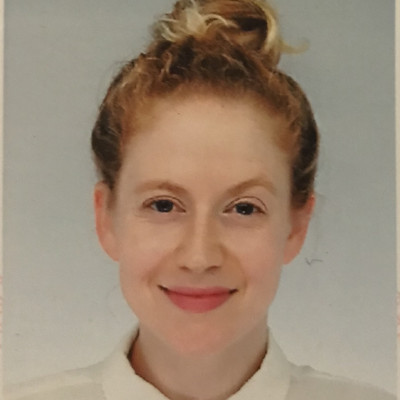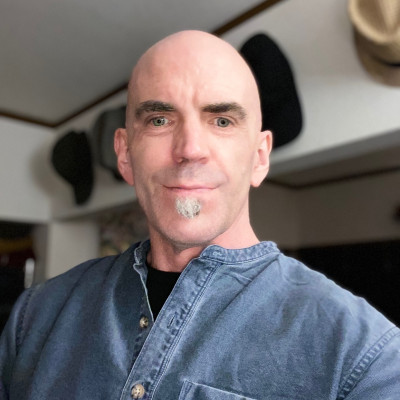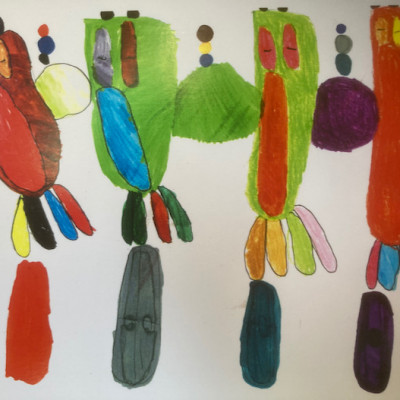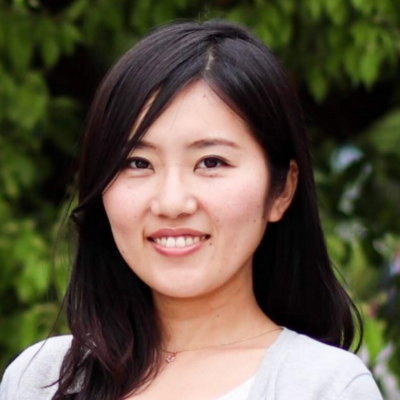Sessions / Bilingual
Help Desk & Networking #3164
Gretchen will be in here providing tech support .... but please come in to continue conversations, catch up with old friends and make new ones!
Barriers to Finding a Home in Japanese Academia: International Students and Academic Harassment #3131
Academic harassment, or akahara, is bullying by a senior faculty member, instructor, or research supervisor. It involves power-laden relationships where a less-privileged individual is unfairly prevented from researching, teaching, or in the case of students, graduating. Akahara cases are in no way unique to Japan and it is unfortunately very easy to find complaints from junior faculty and students from around the globe. However, Ogoshi (2001) and Takeuchi et al. (2018) claim many Japanese universities have a rigid hierarchical system that fails to properly supervise and penalize abusive senior faculty and researchers. This system creates an environment where akahara can thrive.
This bilingual and interactive presentation is about the experiences of international graduate students who have experienced akahara at their Japanese university. This group of students is at particularly high risk for akahara due to unfamiliarity with the Japanese university system, a lack of community support, or still-developing Japanese language skills (Oka, 2017). After clearly defining akahara, this presentation examines literature about akahara in Japan. It then critically explores recent initiatives by Japanese universities to address akahara. Lastly, the presentation encourages audience discussion to brainstorm ideas to support international students and decrease the problem of akahara at universities.
Saturday Lunch + Open Stage #3126
Want to share a song, contribute a poem, just listen to others? Wind down and have your lunch with us. Creative output is welcome.
Stage coordinated by Phil Norton.
How My Younger Sister Brought Me Into the World of Neurodiversity #3136
Having a sibling close to you in age means you spend most of your early lives together. In this interactive presentation, I will talk about my life as a Japanese undergrad student and my relationship with my younger sister who has Down Syndrome, specifically the precious opportunities and valuable experiences she has brought to me. Our relationship has changed over time, and not only does she bring a lot of joy to my life, but she has also given me new perspectives on working with people with neurodiversity, which is still a relatively new concept in Japan. I will also share my related experience of teaching dancing to a class of neurologically diverse students for about 6 years and discuss the importance of having such a safe and comfortable space, both for students and myself. Videos and photos of the dance classes will be used to demonstrate and compare the differences between typical dance classes and classes for neurologically diverse students. Tips on teaching such classes will be shared, as well as the history and logistics of setting up such a class for anyone interested in setting up similar classes in the future. The session will also include rounds of audience discussion and sharing as well as a short Q&A segment.
Futoko: Survivors’ Stories of School Non-Attendance サバイバーが語る不登校ストーリー #3138
I was aware that schools can be painful institutions, but when my son stopped attending his local junior high, it threw us both off the edge. We are not alone. Futoko (school non- attendance for over 30 days a year) is difficult for parents, teachers, and the non-attenders themselves, as school participation has a long-term impact on young people’s lives, and unlike independent adults, minors lack the option of just switching environments. While there are no accurate international comparisons, school refusal affects a significant number of young people throughout the affluent world. In Japan, the percentage of non-attenders has doubled over the past 25 years, with over 1% of elementary and 4% of junior high age children non-attending in 2020.
In this panel discussion, futoko survivors - parents and young people - share their own stories of falling off the edge, finding a toehold, and creating new supportive spaces. Speakers span two generations of futoko experience: founders of an early local parents’ group, a former non-attender supporting futoko and hikikomori youth, and a parent who started an alternative “free” school. Keeping system-wide issues in mind, we will focus on sharing our insiders’ perspectives in the hope this contributes to more belonging, more safety, and more fun on the edge.
「学校」の生きづらさを認識していたが、息子が学校へ行けなくなった中2の秋、親 子とも突然暗闇に落ちたような気持ちだった。決して珍しいことではない。学校参加は 子どもの生涯に長期的な影響を与え、また未成年は生活環境を容易に変更できないとい う現実はあるため、「不登校」が多くの保護者、教員、また本人にとって難しい課題で ある。正確な国際比較は困難だが、裕福な国々において「不登校」は多くの子どもが関 係している事象だ。文科省の統計によると日本では過去 25 年間、不登校生徒数は大凡 倍増し、2020 年度では全国の小学生の1%以上、中学生の4%以上を占めている。
今回のパネルでは、保護者や本人を含め不登校を生き延びたサバイバー数名が自らの ストーリーを共有する。それぞれが、edge(周辺)から落下、また攀じ登り、そして仲 間を支える居場所を創っている。登壇者に2世代の不登校経験を含み、親の会を設立し た保護者、体験を生かし支援のプロになった当事者、フリースクール・居場所を設立し た保護者など。教育システムの課題を念頭に、当事者の観点を共有することによって、学校に馴染みにくい若者が居場所を感じ、より安全に楽しく生きるヒントを一緒に探る。
Moderator: Melisanda Berkowitz
Panelist details: 元当事者で不登校・ひきこもりしている人の支援ワーカー 澤井直樹 愛知県岡崎市 NPO法人コネクトスポット 介護福祉士兼公認心理士
Formerly hikikomori, now a professional support worker Sawai Naoki Licensed psychologist, Certified care worker NPO Connect Spot, Okazaki City, Aichi
保護者の立場、発達心理の専門家として: 大久保義美 愛知みずほ大学 (発達心理)ニュータウン親の会世話人
Parent, psychologist, peer supporter Okubo Yoshimi Aichi Mizuho University (Developmental Psychology), Certified school counselor, New Town Oya no Kai leader
保護者、不登校の子どもと家族への支援 森美智 名古屋市中区金山、NPO法人ハピーラボ 理事長
Parent, NPO support for futoko children and their families Mori Michi Chair, NPO Happy Labo, Kanayama, Nagoya
Addressing Conflict and Living on the Edge: Plurilingualism, Multiperspectivity, and the Cold War in a University EFL Class 大学EFL授業にコンフリクトを取り上げる意義:冷戦史を通して育てる複言語主義、複眼的思考 #3148
The war in Ukraine has reawakened Cold War fears and made 20th-century history relevant to students who have grown up in an age of peace. Considering these circumstances, this presentation introduces a course entitled English Expression through Song, taught by the author, centered on music of the cold-war era. The course aimed to foster analytic ability of English song and metaphor, contextualized within cultures and histories, and to promote multiperspectivity (Kropman, van Boxtel & Van Drie, 2020) and decentering (Candelier et al., 2012). The course emerged from the author’s attempts to reconcile his bi/plurilingualism with expectations to act as a ‘native-speaker’ in an English-only capacity (Pearce, 2021). The presentation explores how the author ‘found his home’ in the classroom employing his plurilingualism and background in Cold War foreign diplomacy. Additionally, qualitative analysis of student reflections and post-course interviews will illuminate shifts in learners’ developing understanding of language, culture, history, and conflict, as well as shifts in their identity as language users. The conclusion touches upon how addressing historical conflict in the course may have helped the students begin to localize their 21st-century identities as part of a complex, conflict-fraught world in which their future trajectories are increasingly unclear, and peace is no longer certain.
Where’s Home for Rural Japanese Women and Their Language on the Move? #3140
Educational disparities exist in Japan according to socio-economic status, region and gender (Matsuoka, 2019). In terms of regional disparities in particular, Kagoshima Prefecture has the lowest rate of students entering four-year universities in Japan, and there is a large gender gap. I myself am a woman from Kagoshima who was once opposed by my parents to going to university or studying abroad, but after going through various processes, I completed my Master’s in the UK and am now studying in a doctoral course. Where, or when, do those from rural areas who go on to university or study abroad, overcoming their parents' opposition, eventually find home? Will they be able to remain themselves of the same culture and identity after returning home? And while learning a foreign language or studying abroad may broaden both one's career path and cultural horizons, at the same time, will it not cause them to suffer from gaps with their local culture? In this presentation, I will attempt to answer these questions through my previous interviews with women from Kagoshima Prefecture and my own autoethnography. I would also like to make this an interactive session, with time for participants to share their own stories.
Sunday Networking #3156
Found someone you want to ask more questions to? Want to chat for longer? Jump into a networking room to keep talking.





